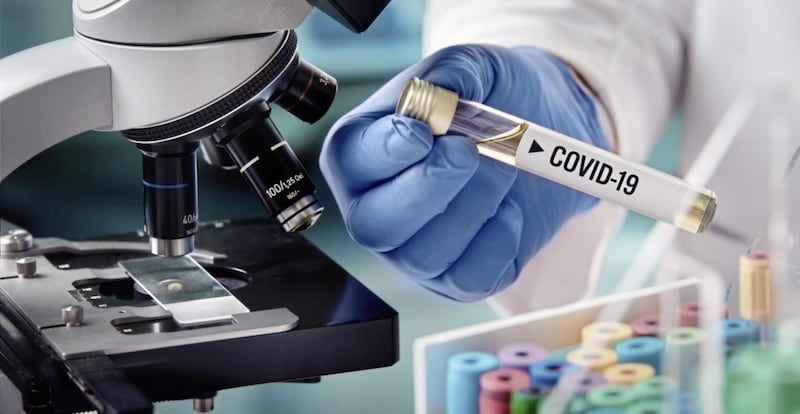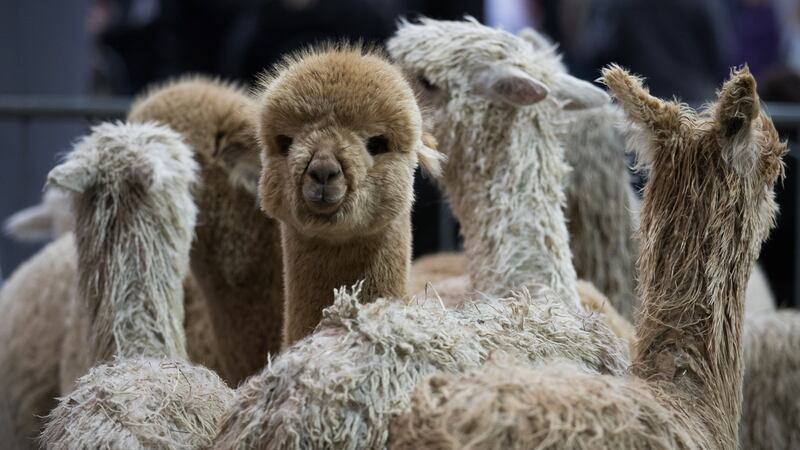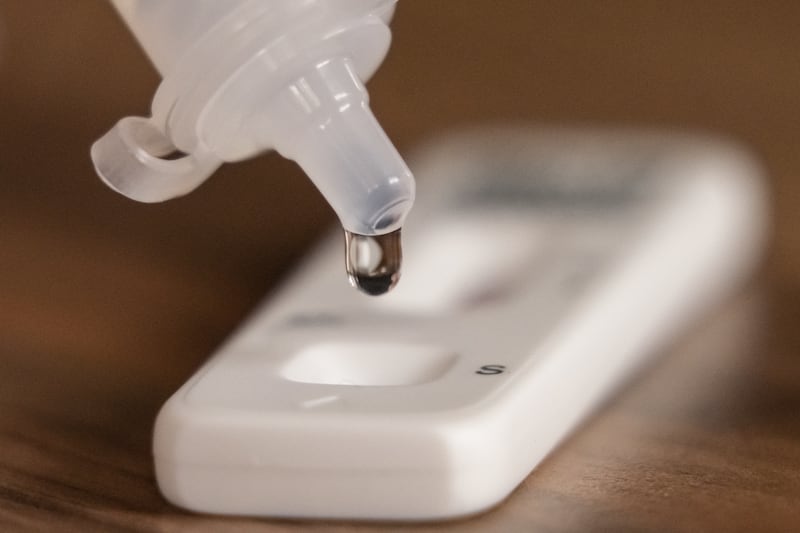Antibody fragments found in alpacas may help stop coronavirus infecting humans, scientists believe.
Researchers say that the tiny proteins made by the animal's immune system have the ability to block Sars-CoV-2, the virus that causes Covid-19, from entering human cells.
A recent study by the Rosalind Franklin Institute and Oxford University also found that antibodies derived from llamas can combat Covid-19 infection.
[ READ MORE: Covid-19 patron 'welcome' back at Enniskillen bar once recoveredOpens in new window ]
Camelids such as llamas, camels and alpacas are able to naturally produce small antibodies with a simpler structure, known as nanobodies, that can help fight viral infections.
Researchers at Karolinska Institutet in Sweden say that nanobodies from camelids can be engineered to work in humans.
They believe nanobodies are better than conventional antibodies when it comes to developing coronavirus treatments because they are small, about one-tenth the size of regular antibodies, and are easier to produce cheaply in large quantities.
The team believe their work, published in the journal Nature Communications, could pave the way for developing antiviral treatments against Covid-19.
Study author Gerald McInerney, an associate professor of virology at Karolinska Institutet, said: "We hope our findings can contribute to the amelioration of the Covid-19 pandemic by encouraging further examination of this nanobody as a therapeutic candidate against this viral infection."
Coronavirus particles have a corona (crown) of proteins that resemble spikes, which enable the virus to attach to, and enter, human cells.
Prof McInerney and his colleagues injected an alpaca with the Sars-CoV-2 spike protein.
Blood samples collected from the alpaca 60 days later showed a strong immune response against the spike protein.

Using a technique known cryo-electron microscopy, the researchers were able to identify a specific nanobody, which they called Ty1, that was able to neutralise the virus.
The researchers found that Ty1 attaches itself to a part of the spike protein that the coronavirus uses to bind a receptor in human cells, known as ACE2.
This blocks the virus from slipping into the cells and prevents infection, the researchers said.
Study author Ben Murrell, also an assistant professor at Karolinska Institutet, said: "Our results show that Ty1 can bind potently to the Sars-CoV-2 spike protein and neutralise the virus, with no detectable off-target activity."
He said the team is now carrying out animal studies to investigate the role of Ty1 in preventing Covid-19 infection and understand more about its therapeutic potential.








